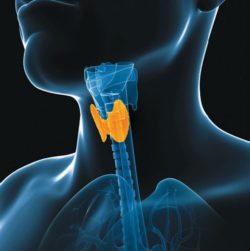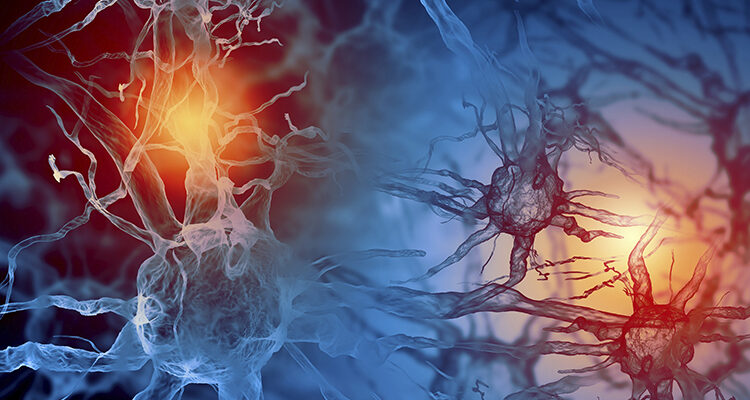
IS YOUR THYROID EFFECTING YOUR ENERGY AND WEIGHT?
There are many functions in our body that are impacted if thyroid hormones are unbalanced. Often in clinic I see thyroid imbalances that present with significant fatigue, digestive issues, sleep problems and weight gain. In Australia there are around 60,000 new cases of thyroid conditions each year. Those who are more susceptible are women 20-40 years old and women who have recently had a baby.
What does the thyroid do?
The thyroid gland is butterfly shaped around our windpipe and it secretes thyroid hormones into the bloodstream. The thyroid makes two main hormones thyroxine (T4) and triiodothyronine (T3), T3 is the main active hormone. The thyroid hormones have a major impact on the speed of our metabolism. These hormones affect every cell, tissue and organ in the body. They also affect our body temperature, circulation, appetite, blood sugar levels, energy levels, growth, bone development, muscle tone, heart rate, fluid balance, blood sugar levels, central nervous system, bowels and cholesterol levels.
An under active thyroid
Hypothyroidism is the medical term for an under active thyroid, it means not enough active T3 hormone is being made and sent in the body. The most common cause of hypothyroid is Hashimoto’s and it is an autoimmune disease, meaning the immune system is attacking the thyroid. Common symptoms of hypothyroidism include:
- Fatigue
- Sensitive to the cold
- Weight gain
- Sleep problems
- “Brain fog”
- Constipation
- Diffuse hair loss over the entire scalp
- Low appetite
- Bloating and flatulence
An overactive thyroid
Hyperthyroidism is the medical term for an overactive thyroid. Some people with an overactive thyroid can have Grave’s disease which is an autoimmune disease where the immune system attacks the thyroid causing inflammation and damage. Common symptoms of hyperthyroidism are:
- Fatigue
- Anxiousness and anxiety
- Sudden weight loss
- Increased sensitivity to heat
- Irregular heart beat
- Increased appetite
- Increase in sweating
- Abdominal pain
- Reflux
- Hair loss
The importance of diagnosing your thyroid correctly
When the thyroid is out of balance the symptoms sometimes negatively impact the normal life of an individual. Thyroid symptoms can get worse over time if not diagnosed and treated. If there is an undiagnosed autoimmune disease there is a timeline where the thyroid is being damaged, and over time may even cease to function all together. Time can be of the essence. Unfortunately, hypothyroidism and Hashimoto’s (autoimmune hypothyroid) are commonly misdiagnose or missed. Why? Often due to TSH deception. TSH (thyroid stimulating hormone) often appears normal on blood tests. If the TSH is not normal (out of range) then, and usually only then, the T3 and T4 hormones (and maybe autoantibodies) are checked. In my clinic, as a Naturopath, I often use functional testing as needed (at cost to the client) to bypass this issue and get quick, clear lab results. As needed I work GPs and specialists for co-treatment so the best of both worlds can be utilised, and medical care is given as required.
Nutrients and the thyroid
One of the underlying causes for thyroid conditions are nutrient deficiencies and sub optimal status. Sometimes thyroid symptoms and hair loss can remain even after prescribed thyroid medication is taken1, as certain nutritional deficiencies and other factors that contribute to thyroid imbalance have not been treated.
Nutrients including zinc, iodine, selenium and iron2 are required for the synthesis of thyroid hormones, a deficiency in either of these can impact thyroid hormones. Good food sources in Australia include:
- Zinc – Oysters, shellfish, beef, pork, chicken, eggs, hard cheeses, nuts, pulses, wholegrains.
- Iodine – Iodised salt, kelp, seaweeds, sea vegetables, fish, shellfish, eggs, dairy, mozzarella cheese, strawberries. (Although high iodine can effect the thyroid negatively)
- Selenium – Brazil nuts, seafood (especially crab, tuna, lobster), eggs, meat, corn, wheat.
- Iron – Beef, kangaroo, lamb, salmon, tuna, pork, egg yolk, kidney bean, lentils, nuts, spinach.
Underlying causes
Besides nutrients, other underlying causes may include lowered digestive stomach acid and gastrointestinal pathogens. Suggestions for improving digestion include using lemon juice or apple cider vinegar in a little water and having it with meals, eating bitter foods, sprouts, greens and raw foods for enzymes.
Unstable blood sugar encourages your body to convert more T4 to reverse T3, (an inactive form of thyroid hormone). Therefor eating foods that are high in fibre and low in refined carbohydrates is important, also choosing low GI foods might be a helpful intervention.
Sometimes those with Hashimoto’s or hypothyroidism taking thyroid medication find over time previous thyroid symptoms return. Sometimes the GP may increase the dose, for some however this may not be effective. Even though the medication can be very useful, ultimately and unfortunately the medication is not treating the underlying cause. This is very important, and in clinic I often have clients who while taking their medications will also treat the underlying cause to help to restore function to the thyroid and bring about increased health and minimise symptoms. Ignoring the underlying causes of thyroid disease does not always work well in the long run!
Can Natural Medicine help with thyroid health?
Often in my clinic I will advise my clients to do a test called a thyroid panel (this is an additional cost to the client and is not covered by medicare). This panel is sent to a lab and the results will show specifically what the thyroid hormones are doing. This panel looks at TSH, Free T4, Free T3, and Reverse T3, and antibodies if needed. It is a science-based approach to understanding what all the thyroid hormones are doing, not just TSH (thyroid stimulating hormone). When a client comes to see me in my Naturopathic clinic it does not matter if the client has not yet been diagnosed, or whether the client is already diagnosed and taking medication. All my Naturopathic consultations provide an individually constructed treatment plan. This treatment plan factors in your needs and may use nutrients, foods, herbs and lifestyle therapy. As an integrative Naturopath, I also work with GPs and specialists as needed, for the benefit of my clients. All my Naturopathic treatments are checked for interactions, so if you are taking medications that is fine, as all prescribed herbs and nutrients will not interfere with this. If you feel your case is complex and you want to inquire regarding whether a Naturopathic consultation is suitable for your current medical situation you are welcome to call the clinic and inquire. Free 10 minute phone consultation for inquiries is advised if in doubt. You are welcome to contact us should you have further inquiries or wish to make a booking at Bark and Berry Natural Medicine.
By Nadia Peach N.D.
References:
- Betsy, A., Binitha, M. P., & Sarita, S. (2013). Zinc deficiency associated with hypothyroidism: an overlooked cause of severe alopecia. International journal of trichology, 5(1), 40.
- Hu, S., & Rayman, M. P. (2017). Multiple nutritional factors and the risk of Hashimoto’s thyroiditis. Thyroid, 27(5), 597-610.



